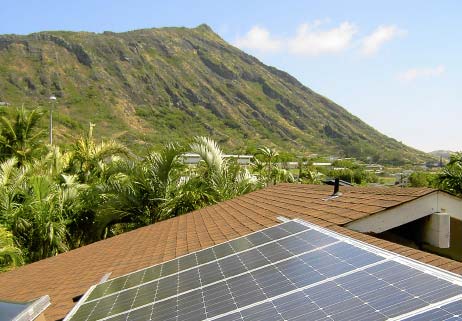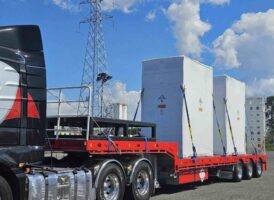Hawaiian regulators have approved the proposed 185MW/565MWh Kapolei Energy Storage battery energy storage project on the island of Oahu, paving the way for San Francisco-based developer Plus Power to begin construction on behalf of Hawaiian Electric Co.
The Hawaii Public Utilities Commission approved the energy storage Power Purchase Agreement (PPA) between Hawaiian Electric and Kapolei Energy Storage, which was originally proposed back in September as part of a raft of proposals designed to accelerate the end of coal-fired power plants across the state of Hawaii.
Hawaiian Electric announced in September 2020 that they had submitted eight contracts to the Hawaii Public Utilities Commission for review and approval – including seven solar + storage projects, and the standalone Kapolei Energy Storage battery energy storage project.
The 185 MW / 565 MWh battery storage project is intended to provide load shifting and fast-frequency response services to Hawaiian Electric, enhancing the reliability of the Hawaiian power grid and helping to accelerate the integration of renewable energy projects.
Construction is expected to start anytime now, and will be completed in 2022, around the time that the 180MW AES coal-fired power plant on Oahu, which currently serves approximately 15% of the island’s demand, is set to shutter, part of a series of fossil fuel-powered plants which are set to close in the coming years.
However, delays to renewable energy projects have prompted concern, especially in regard to the potential shortfall of supply approaching if renewable energy projects are not brought online to replace the retiring fossil fuel-powered supply, raising questions over what power source the new battery might initially use to charge up.
The Hawaii Public Utilities Commission has found itself between a rock and a hard place – needing to approve the Kapolei Energy Storage project, but not wanting it to be charged with fossil fuels.
As the Commission wrote in its findings, “Replacement of coal power plant with flexible asset should offer the potential to reduce reliance on fossil fuels, rather than simply substituting generation from one fossil fuel for another.”
The Commission went on to say that “the Commission reiterates that standalone (batteries) for increasing Hawaiian Electric storage that is charged by fossil fuels is not the preferred method on the grid.
“The Commission is approving this Project to provide further assurance that the ‘lights will stay on’ during the retirement of the AES coal plant in 2022 and future retirements of aging fossil-fueled plants in the next several years.
The emphasis is now on Hawaiian Electric to expand the available capacity for some of its community-based renewable energy projects, and it will also be forced to “financially retire” a series of fossil fuel-powered plants between 2023 and 2028, and submit regular reports on the role of renewable energy in charging the battery project.
Hawaiian Electric spokesperson Shannon Tangonan saying in an emailed statement to Utility Dive the company was disappointed by some of the characterizations made by the commission.
“We disagree with them,” Tangonan said. “The regulatory process allows us to raise these concerns to the PUC and so we will follow the process to the fullest extent to achieve an outcome that’s in the best interest of customers.”










